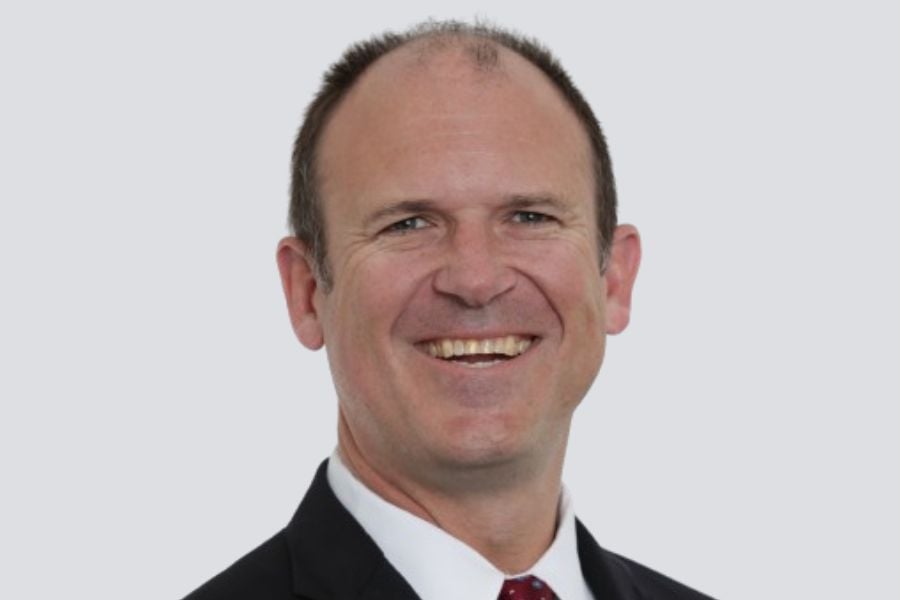

With several months to go before the election, there is ample time for the markets to swing one way or the other.
However, this also leaves space for investors to make rash short-term portfolio allocations that can have harmful long-term implications, says Spuds Powell, managing director at Kayne Anderson Rudnick, a Los Angeles-based RIA.
The consistent theme he encounters among his clientele are the political emotions and strong visceral political opinions that run rampant, leading up to November’s uncertain election. He would go far to even argue that there’s more political divisiveness in America than he can ever recall.
“With all that emotion, a lot of investors are inclined to make the mistake of applying some of those strong political sentiments and emotions on their investment judgment,” Powell says. “I've always felt that the most common mistake, and arguably the worst mistake investors can make, is letting their emotions influence their investment judgment.”
This is why he’s committed to helping clients realize and understand why politicians tend to have less influence on the behavior of the stock market and the capital markets than most people give them credit for.
After all, clients aren't adjusting their investment strategy or their asset allocation, just because we're in an election year, Powell says.
However, there's no question that the uncertainty around who will win the election and what will happen with Congress may or may not impact the economy, certain industries, taxes or regulation.
“It creates a lot of angst and nervousness,” he said. “I've always felt that when something important is uncertain, investors tend to focus much more on what can go wrong than then then the focus on what can go right.”
“That can cause some investors to be inclined to want to make changes to the way they invest. My priority, as a wealth advisor, is to do all that I need to do to earn my clients’ confidence so that I'm in the best position I can be to help them avoid making emotion-driven decisions that they end up regretting.
“Fortunately, I've had success doing that,” Powell added.
Powell often reminds clients that the stock market tends to generally do well during election years. Indeed, he highlights that since 1928, if one was to look at every presidential election year - 20 out of 24 (or 83 percent) elections - the S&P 500 generated a positive return, more than 11 percent.
“Sharing facts and information like that helps clients to gain some perspective and helps to reduce some of the irrationality that comes from some of the heightened emotions a lot of investors have about politics,” Powell said.
Powell points to the performance of the energy sector during the last two presidential cycles, which he says performed the opposite way that most investors predicted.
“It’s an example of how presidents don't have as much influence on the economy, stock market or certain industries as a lot of people give them credit for,” he says.
Additionally, while there are real concerns and corresponding conversations to be had about how a particular candidate’s intended policies may affect specific sectors, it doesn’t pay to allocate portfolios based solely on what-ifs and fear-driven sentiment, as Powell says there’s often “gridlock in Washington.”
“Right now, as an example, we have a Democratic president and a Democratic senate, but we have a Republican-led house. And if you have some balance in Washington, then you've got sort of the checks and balances that come with that,” he says.
“The more extreme left and extreme right point of views and predictions that are being made by politicians of both parties can't be implemented or enacted because of the gridlock that exists.”
In the interest of serving as effective financial psychologists, Powell encourages advisors to dissuade clients from the notion that their investments’ success is wholly intertwined with the outcome of the election.
“Don’t disregard the emotions behind client concerns about the election,” he asserts. “I found that even some of the most well educated, most successful and most sophisticated clients that I have, are inclined to make bad decisions, even irrational decisions, if they become too emotional.
“At a time where there can be heightened emotions, it's even more important to be proactively communicating with clients,” he added.
Over the next few months, Powell says advisors should be making themselves readily available to clients, whether that be through face-to-face meetings or regular check-ins. Effective communication is paramount, and the legitimate concerns animating investors’ fears need to be acknowledged and eased.
“Try to think about their point of view and their concerns from their perspective, and be empathetic and sympathetic,” Powell said. “Give them an opportunity to express that point of view. After they've shared their feelings, provide some perspective, share back information or feedback that maybe they hadn't considered and provide them with a different perspective.”
“Facts can be a good way to ground people and provide a healthy perspective to offset some of their emotion-driven conclusions or predictions.”
Name: Spuds Powell
Position: Managing director
Company: Kayne Anderson Rudnick
Founded: 1984
AUM: $65.3 billion

Relationships are key to our business but advisors are often slow to engage in specific activities designed to foster them.

Whichever path you go down, act now while you're still in control.

Pro-bitcoin professionals, however, say the cryptocurrency has ushered in change.

“LPL has evolved significantly over the last decade and still wants to scale up,” says one industry executive.

Survey findings from the Nationwide Retirement Institute offers pearls of planning wisdom from 60- to 65-year-olds, as well as insights into concerns.
Streamline your outreach with Aidentified's AI-driven solutions
This season’s market volatility: Positioning for rate relief, income growth and the AI rebound
